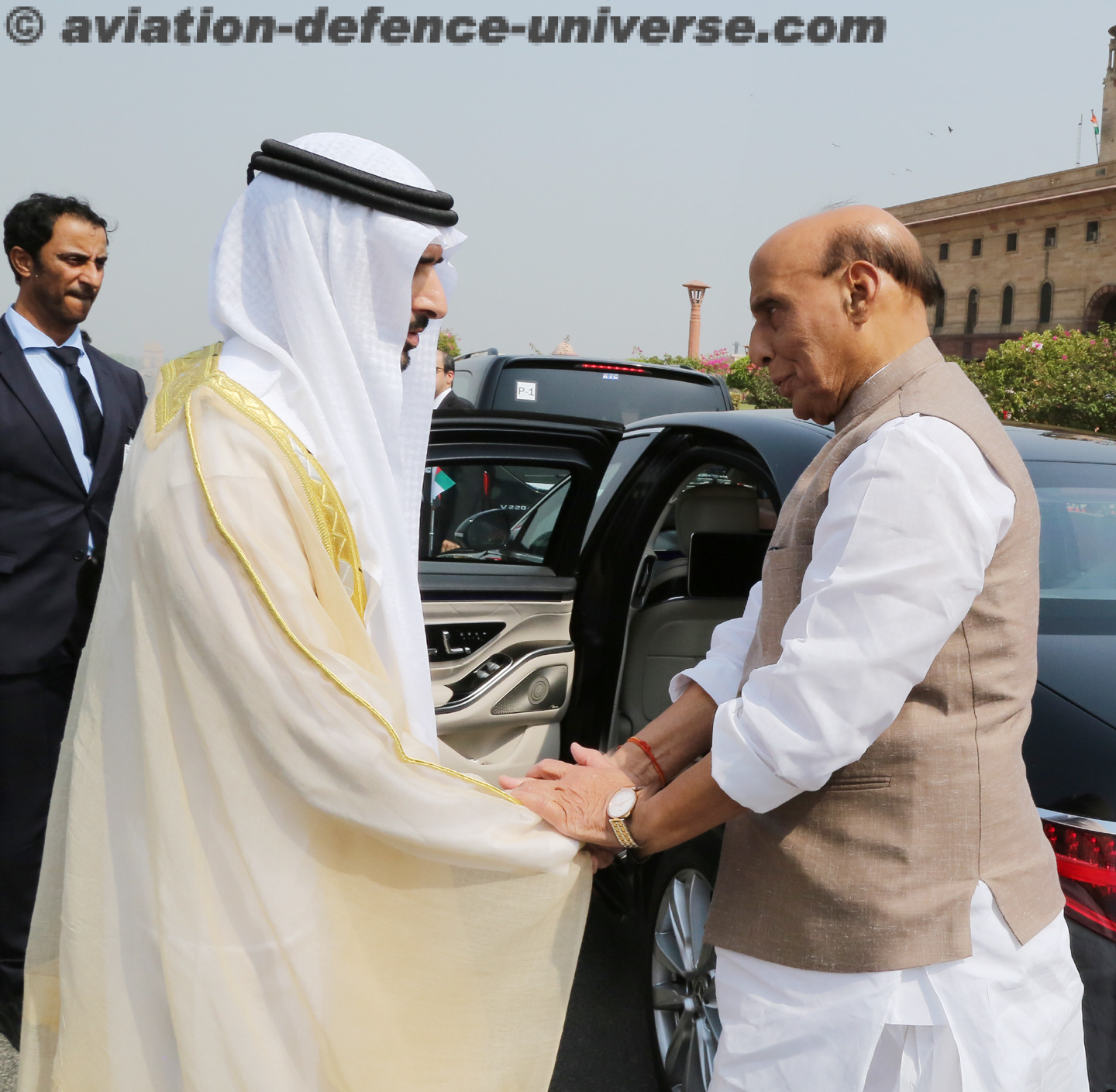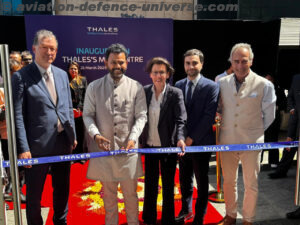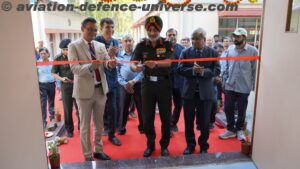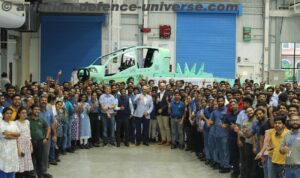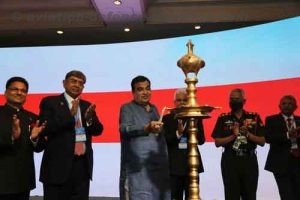
New Delhi. 30 September 2021. The year 2020 has been an unprecedented year for India with the outbreak of COVID-19 wreaking a havoc on not just human lives but even the Indian economy. However, in the face of this adversity, the Indian government has shown immense strength and robustness. Discussing the heroic initiatives undertaken and the sturdiness of the economy witnessed during this watershed event, the 116th Annual Session of PHD Chamber of Commerce and Industry was organised to throw light on measures taken to restore the Indian economy to pre-pandemic levels by the Union Government in tandem with the Defence Forces.
General Manoj Mukund Naravane, PVSM, AVSM, SM, VSM, ADC, Chief of Army Staff in his inaugural address appreciated the efforts of the PHD Chamber for the promotion of industry, trade and socio-economic developments in the challenging time of COVID-19 pandemic as well as promoting indigenized manufacturing in Defence sector. India is bouncing back with more resilient infrastructure in healthcare and robust growth. He highlighted the Indian Army contribution to tackle the two waves of the Covid-19 in India and it is exemplary contribution and facilitated medical assistance, building health infrastructure and essential services throughout the country to the different sections of population and families. He shared how Indian manufacturing, MSMEs and start-ups are coming up to manufacture the defence equipment’s and tools. He embarked upon the Indian Army significant contribution during the pandemic like Operation Samudra Setu, Floating Bridge, and Operation Namaste to combat the spread of COVID-19.
The Chief Guest for the occasion, Union Minister for Road Transport and Highways Nitin Gadkari during his address highlighted how India can cut down on its import bill on the purchase petrol and diesel which is as high as Rs 12 lakh crore now. He spoke about the requirement to switch to indigenous fuels. He also expressed his concern over air and water pollution being serious issues in Delhi. He discussed how the government is working on steps to bring down the pollution levels in Delhi. He mentioned that the new infrastructure is being developed in the form of new highways including Delhi-Meerut highway, Delhi-Mumbai green corridor, peripheral road for carriage goods that will strengthen the industries by reducing the logistic costs and reduce the congestion and pollution prevailing over the city.
He stated that the government is seriously looking at ways to tap the potential of the waterways in the country. He explained that as compared to the road and railways, the cost of logistics on waterways comes to just around 10 percent of the cost. This would mean huge savings and give the Indian companies the competitive edge for exports. He said that this would provide more connectivity to the South-East Asian region.
He further mentioned that new highways will reduce the travel time from Kashmir to other parts of the country. TheMinister mentioned the schemes for developing logistic parks, container depot nearby Delhi for food, cement, and cold storage among others.
Gadkari discussed how green fuel is the future of the world. He has proposed to introduce flex engines as mandatory in India to reduce cost and pollution. India has the capacity to produce ethanol, methanol and other green energy sources as India has excess capacity for the same. He suggested that the crop pattern should be changed as this will increase the income of our farmers and also increase the industrial participation for developing new avenues of employment. LNG, bio-fuel, and green hydrogen are the future of Indian industries for reducing the cost of logistics and power as well as provide more strength to Aatmanirbhar Bharat. India is producing around 85% of Lithium batteries and working aggressively for promoting electric vehicles in the country. He concluded by saying that the government is working to make the automobile industry a Rs 15- lakh crore worth segment that will offer additional employment to around 1 crore people in India.
Sanjay Aggarwal, President, PHD Chamber of Commerce and Industry, in his welcome address at the inaugural session on the Annual general meeting Session provided the pathway to make India more resilient. He appreciated the efforts of our government to promote MSMEs under the ‘Make in India’ and Aatma Nirbhar Bharat campaigns and other similar policy support initiatives. The bold economic reforms under ‘Aatma Nirbhar Bharat’ have created a strong base for expanding manufacturing activities and building a thrust for industrial revolution 4.0 in order to make India a more robust economy. He also spoke about the need to minimize reliance on external sources and instead boost the development of MSMEs. He further elaborated upon the 25 mega sectoral reforms suggested to the government by PHDCCI to become the size of the USD 5 trillion by FY 2026-27 and restore the Indian economy.

He appreciated the reform-oriented approach of the government to make India a manufacturing hub and boosting economic growth and easing financial stress caused by COVID-19 disruptions. He highlighted the key contribution of PHDCCI to bridge the gap between government and industry, particularly for the Defence sector. Further, he emphasised on both the aspects of life and wellbeing that are inherent in the trade-offs between dynamic factors for India’s development and uncertainty posed by the pandemic.
The session was concluded with the release of the 116th Yearbook and the annual report by PHDCCI followed by a vote of thanks by Pradeep Multani, Senior Vice President, PHD Chamber of Commerce and Industry.

















